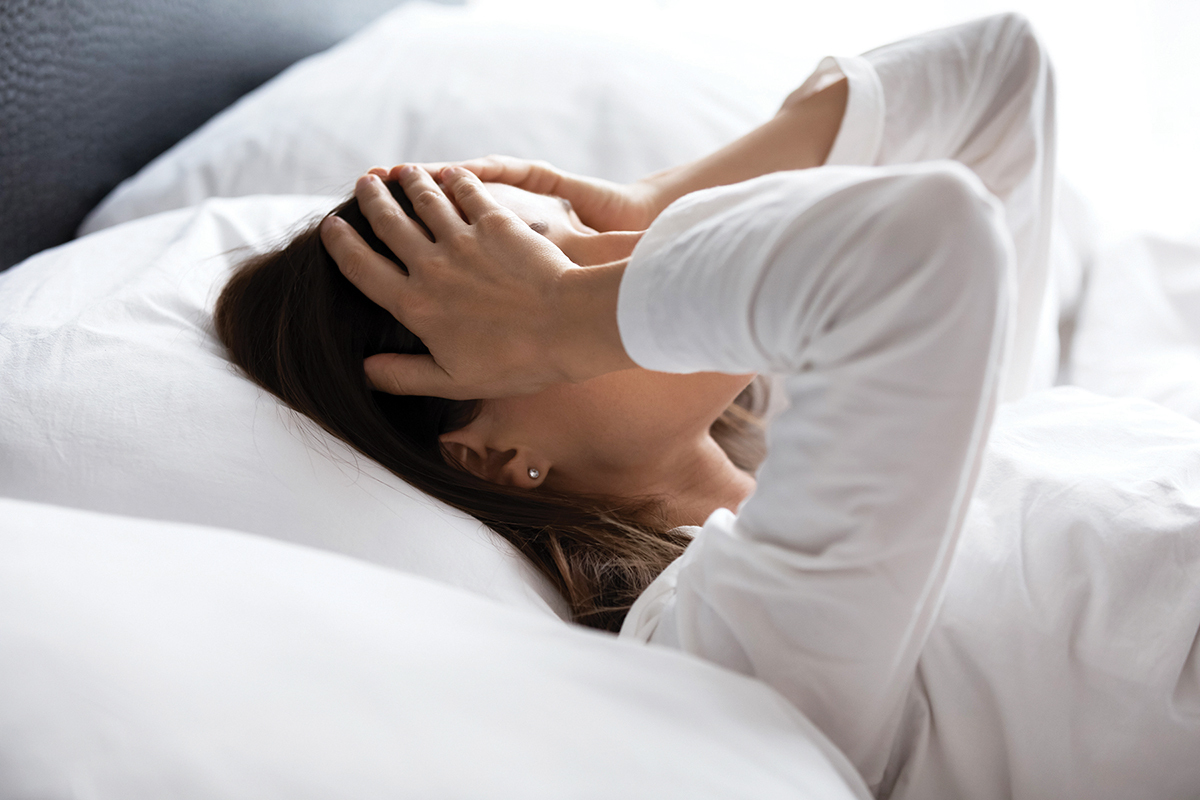Sleep ... Where Have You Gone?
Secrets Of The Elusive Slumber

As described by the Mayo Clinic, sleep provides the foundation for all of your daily habits and decisions. Sleep deprivation can negatively affect your mood and temperament, as well as your ability to focus on daily tasks. Furthermore, it plays a critical role in immune function, metabolism, memory, learning, and other vital functions. But for many, getting a good night of sleep isn’t a simple task. Does this seem like a dream for you? I get it – I was that guy in my 20s who bragged about how I could drink a double espresso and then go right to sleep. Now that I’m not in my 20s, when I have a couple glasses of wine, I toss and turn all night.
Does this sound like you? If so, you are not alone. In fact, only a quarter of Americans get the recommended seven hours of sleep per night. Compare that to the 1940s, when Americans averaged 7.9 hours per night.
So why are we all sleeping less?
To no surprise, we live in a 24/7 world that makes shutting our minds down difficult. Life was simpler when the television net-works would go off the air at midnight with the playing of the National Anthem. After that, you could either listen to music, read, or stare at the ceiling until you feel asleep.
Today, we have 500+ channels on TV, movies on demand, and an endless supply of content to search on social media or the Internet. (Who doesn’t want to learn more about how to raise llamas?)
There are also other contributing factors that can make sleep more elusive:
– Chronic pain from arthritis, headaches, or fibromyalgia;
– Sleep apnea, asthma, or COPD;
– Depression and anxiety;
– Bedroom environment (i.e. a partner who snores or a room that is too hot).
What can we do?
So what can we do to sleep more and improve the quality of our sleep? Try one or all of the following tips.
Tip 1: Establish a sleep schedule. The nightly news may come on at 11:00 PM; however, the perfect bedtime is 10:00 PM. Our bodies release growth hormones between 11:00 PM – 2:00 AM, and these hormones play a significant role in rejuvenating our immune systems and repairing our skin.
Tip 2: Limit caffeine after 4:00 PM. We often consume caffeine and sugar to stay awake during the day. However, these are stimulants and can interrupt our ability to fall asleep later in the evening.
Tip 3: Put down the devices. Our brains naturally produce melatonin in response to darkness, which helps control our sleep/wake rhythms and induces drowsiness when we turn off the lights. However, the light from our phone screens affect melatonin production, so try putting yours down at least 30 minutes before bed.
Tip 4: Take a little nap. Taking a short nap (20-30 minutes) during the day can makes you feel refreshed, but napping too long or late in the day can elicit sleep deprivation at night.
Tip 5: Turn to nature. CBD helps calm the mind before bed, and when taken during the day, can help alleviate stress and anxiety. There is a reason why 89% of CBD users report a better night’s sleep when taking it.
Sleep is our time to recover, and it is recommended that we all get a minimum of seven hours per night. This may not be possible for you, and that is ok – keep in mind that even one extra hour can make a big difference.
Nick Pione
A local business owner, blog writer, and natural wellness expert. He co-founded Trek CBD and contributes to medium.com and trekcbd.com.

